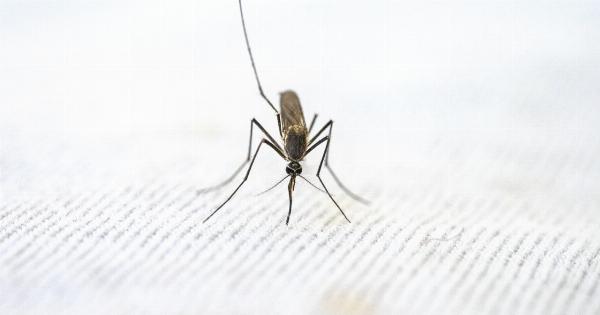In 2018, a staggering number of 140,000 lives were lost to measles, a highly contagious and potentially deadly disease.
Despite the availability of vaccines that are remarkably effective at preventing measles, outbreaks and fatalities continue to occur around the world. This article examines the devastating impact of measles in 2018 and highlights the urgent need for global vaccination efforts.
The Global Burden
Measles is a viral illness that spreads through respiratory droplets from an infected individual. The disease primarily affects children, but adults can also be vulnerable if they haven’t received proper immunization.
Although measles is preventable, it continues to pose a significant threat to public health worldwide. The year 2018 saw a resurgence of measles cases, with devastating consequences.
The Alarming Outbreaks
Various countries experienced severe measles outbreaks in 2018, leading to a significant loss of lives. The European region, in particular, witnessed a surge in cases, with over 60,000 reported infections and a death toll surpassing 80.
Germany, Italy, and Ukraine were among the most severely affected countries, highlighting the importance of maintaining high vaccination rates to prevent the spread of the disease.
Measles in Africa
Africa also faced a substantial burden of measles cases in 2018. The Democratic Republic of Congo (DRC) reported over 30,000 cases with nearly 5,000 deaths.
The outbreak in the DRC was driven by various factors, including low immunization coverage, inadequate healthcare infrastructure, and ongoing conflicts, making it difficult to contain the disease. Other African countries, such as Madagascar and Nigeria, also experienced significant measles outbreaks.
The Americas and Measles
In the Americas, the United States witnessed its largest measles outbreak in decades in 2018. With over 350 reported cases, it highlighted the vulnerability of communities with low vaccination rates.
Other countries in the region, including Brazil and Venezuela, also faced measles outbreaks with devastating consequences.
Asia’s Battle against Measles
Asia also struggled with measles outbreaks, particularly in countries like India, Pakistan, and the Philippines.
These nations, with their dense populations and challenges in reaching remote areas, faced difficulties in implementing comprehensive vaccination programs. As a result, thousands of lives were lost to measles in 2018 alone.
The Importance of Vaccination
The impact of these measles outbreaks underscores the importance of vaccination. Vaccines offer a safe and effective means of preventing measles, reducing the risk of transmission and protecting vulnerable populations.
They play a crucial role in building herd immunity, where a sufficient percentage of the population is immunized, halting the spread of the disease and protecting those unable to receive vaccines.
Addressing Vaccine Hesitancy
One significant barrier to achieving high vaccination rates is vaccine hesitancy. Misinformation and mistrust surrounding vaccines have fueled skepticism in some communities, leading to decreased immunization rates.
Addressing this issue requires efforts to disseminate accurate information about the safety and benefits of vaccines, engaging in open dialogue, and debunking myths surrounding immunization.
Strengthening Healthcare Systems
Strengthening healthcare systems is also instrumental in preventing measles outbreaks. Adequate funding and resources must be allocated to healthcare infrastructure, ensuring that vaccines are readily accessible to all individuals.
Collaboration between governments, healthcare providers, and international organizations is essential to promote vaccination campaigns, enhance surveillance systems, and respond effectively to outbreaks.
Global Collaboration and Targets
The global community has recognized the urgency to tackle the measles crisis. The World Health Organization (WHO) set ambitious targets for measles elimination, aiming to reduce measles-related deaths by 90% by the year 2030.
This goal can only be achieved through concerted efforts and collaboration among nations, organizations, and individuals committed to ending measles outbreaks worldwide.
Conclusion
The devastating loss of 140,000 lives to measles in 2018 serves as a wake-up call for action. Measles is a preventable disease, and no one should lose their lives to it in this day and age.
Global efforts must be intensified to ensure the availability and accessibility of vaccines, address vaccine hesitancy, strengthen healthcare systems, and foster international collaboration. Only through these comprehensive measures can we hope to eliminate measles and save countless lives.































